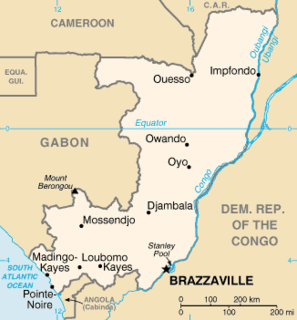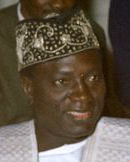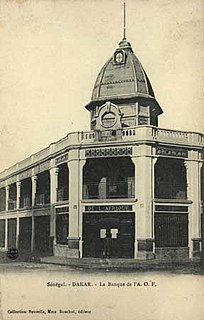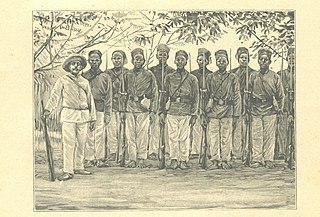Communist Study Groups (in French: Groupes d'Etudes Communistes), was a communist group in colonial French West Africa/French Equatorial Africa. GEC was founded in 1943, under the influence of the French Communist Party. GEC formed branches in the capital cities of the West African territories. GEC was primarily based amongst intellectuals. It was led by Suret-Canale and Cauche.

French is a Romance language of the Indo-European family. It descended from the Vulgar Latin of the Roman Empire, as did all Romance languages. French evolved from Gallo-Romance, the spoken Latin in Gaul, and more specifically in Northern Gaul. Its closest relatives are the other langues d'oïl—languages historically spoken in northern France and in southern Belgium, which French (Francien) has largely supplanted. French was also influenced by native Celtic languages of Northern Roman Gaul like Gallia Belgica and by the (Germanic) Frankish language of the post-Roman Frankish invaders. Today, owing to France's past overseas expansion, there are numerous French-based creole languages, most notably Haitian Creole. A French-speaking person or nation may be referred to as Francophone in both English and French.

French West Africa was a federation of eight French colonial territories in Africa: Mauritania, Senegal, French Sudan, French Guinea, Ivory Coast, Upper Volta, Dahomey and Niger. The capital of the federation was Dakar. The federation existed from 1895 until 1960.

French Equatorial Africa, or the AEF, was the federation of French colonial possessions in Equatorial Africa, extending northwards from the Congo River into the Sahel, and comprising what are today the countries of Chad, the Central African Republic, Cameroon, the Republic of the Congo, and Gabon.
In the 1946 French legislative elections, GEC received 1180 votes (0.9%) in Senegal.

Senegal, officially the Republic of Senegal, is a country in West Africa. Senegal is bordered by Mauritania in the north, Mali to the east, Guinea to the southeast, and Guinea-Bissau to the southwest. Senegal also borders The Gambia, a country occupying a narrow sliver of land along the banks of the Gambia River, which separates Senegal's southern region of Casamance from the rest of the country. Senegal also shares a maritime border with Cape Verde. Senegal's economic and political capital is Dakar.
In Senegal, GEC evolved into the Senegalese Democratic Union, section of the African Democratic Rally.

Senegalese Democratic Union was a political party in Senegal, founded in 1946 by the Communist Study Groups (GEC). UDS became affiliated as the Senegalese section of the African Democratic Rally (RDA).
In Bamako, Modibo Keita was a prominent member of GEC. GEC supported his candidacy in the elections to the Constituent Assembly of the Fourth Republic in 1945.

Bamako is the capital and largest city of Mali, with a population of 2,009,109. In 2006, it was estimated to be the fastest-growing city in Africa and sixth-fastest in the world. It is located on the Niger River, near the rapids that divide the upper and middle Niger valleys in the southwestern part of the country.

The French Fourth Republic was the republican government of France between 1946 and 1958, governed by the fourth republican constitution. It was in many ways a revival of the Third Republic that was in place from 1870 during the Franco-Prussian War to 1940 during World War II, and suffered many of the same problems. France adopted the constitution of the Fourth Republic on 13 October 1946.
In February 1946 the first GEC group was established in French Equatorial Africa, founded by Europeans in Brazzaville. [1]

Brazzaville is the capital and largest city of the Republic of the Congo. Constituting the financial and administrative centre of the country, it is located on the north side of the Congo River, opposite Kinshasa, Democratic Republic of the Congo. The population of the capital is estimated to exceed 1.8 million residents, comprising more than a third of the national populace, 40% of whom are employed in non-agricultural professions. During World War II, Brazzaville was also the capital of Free France between 1940 and 1942.



